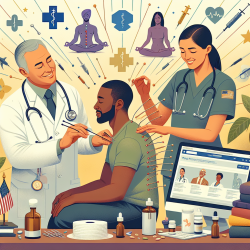Understanding Speech-Language Pathologist Licensure in West Virginia
As a Special Education Director, one of my key responsibilities is ensuring that our district complies with all legal requirements for staffing qualified professionals. In the field of speech-language pathology, this means understanding the licensure requirements that professionals must meet to practice in our schools. In West Virginia, these requirements are detailed in §30-32-9, and they are essential for anyone aspiring to work as a speech-language pathologist in the state.
Licensure Requirements
The process of becoming a licensed speech-language pathologist in West Virginia involves several steps, each designed to ensure that the professional is adequately prepared to provide high-quality services. Below are the key requirements as outlined in the legislation:
- Application: The applicant must submit an application to the board using a form prescribed by the board.
- Application Fee: A fee, as established by the board, must be paid during the application process.
- Educational Qualifications: The applicant must hold at least a master's degree or equivalent in speech-language pathology from an educational institution approved by the board. This degree must include coursework approved by the board and detailed in legislative rules.
- Clinical Practicum: Completion of supervised clinical practicum experiences is required. These experiences must be from an educational institution or its cooperating programs and approved by the board.
- Postgraduate Professional Experience: After completing their degree, applicants must complete a postgraduate professional experience as approved by the board.
- National Examination: Passing the national examination in speech-language pathology is mandatory.
- Jurisprudence Examination: Applicants must also pass a jurisprudence examination developed by the board.
Continuing Licensure
Once a license is issued, it remains valid under the conditions set forth in prior enactments of this article. However, it is subject to renewal requirements as detailed in section seventeen of the article. This ensures that licensed professionals continue to meet the evolving standards of practice in speech-language pathology.
Conclusion
Understanding these licensure requirements is crucial for both aspiring speech-language pathologists and the school districts that employ them. By ensuring that all professionals meet these standards, we can maintain the quality of therapy services provided to students. For more detailed information on the qualifications for licensure as a speech-language pathologist in West Virginia, please follow this link.










